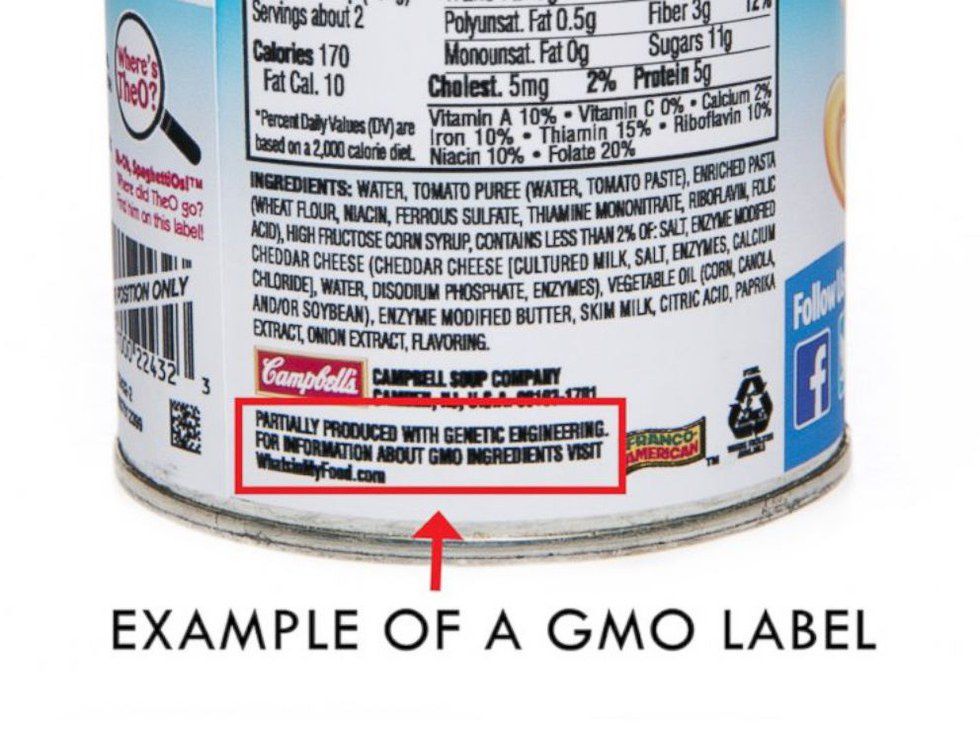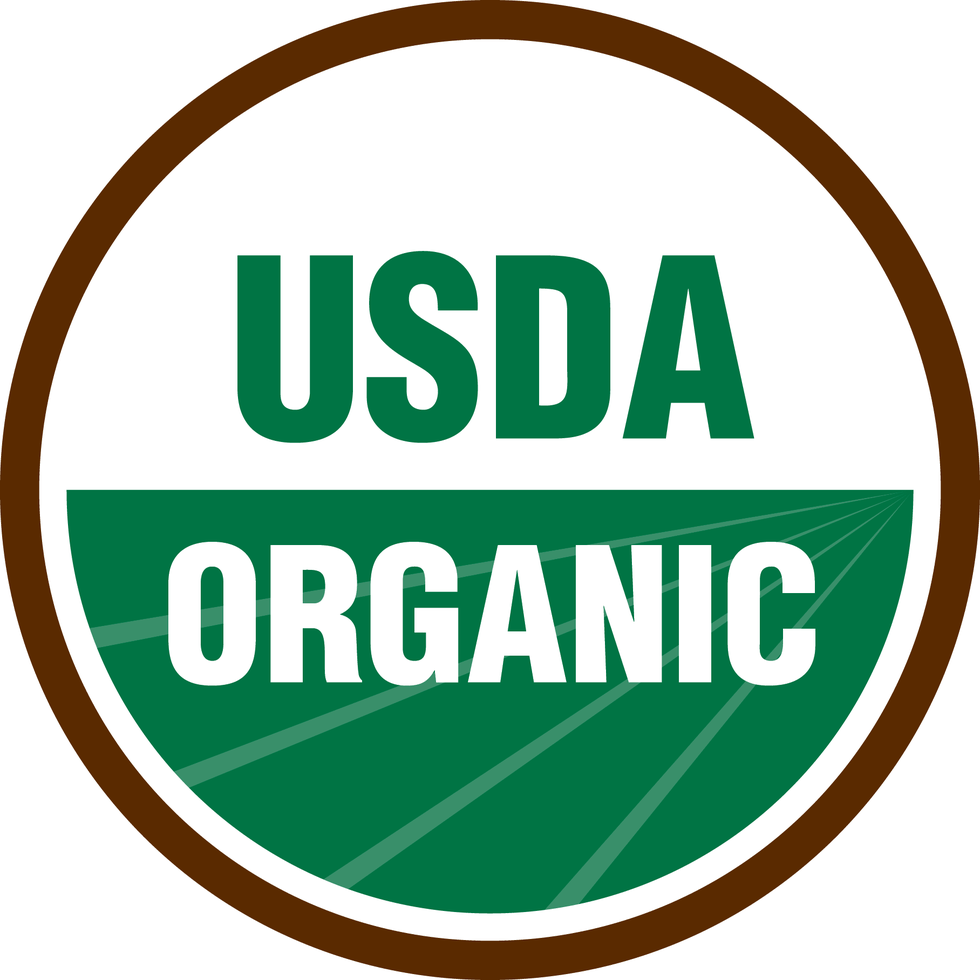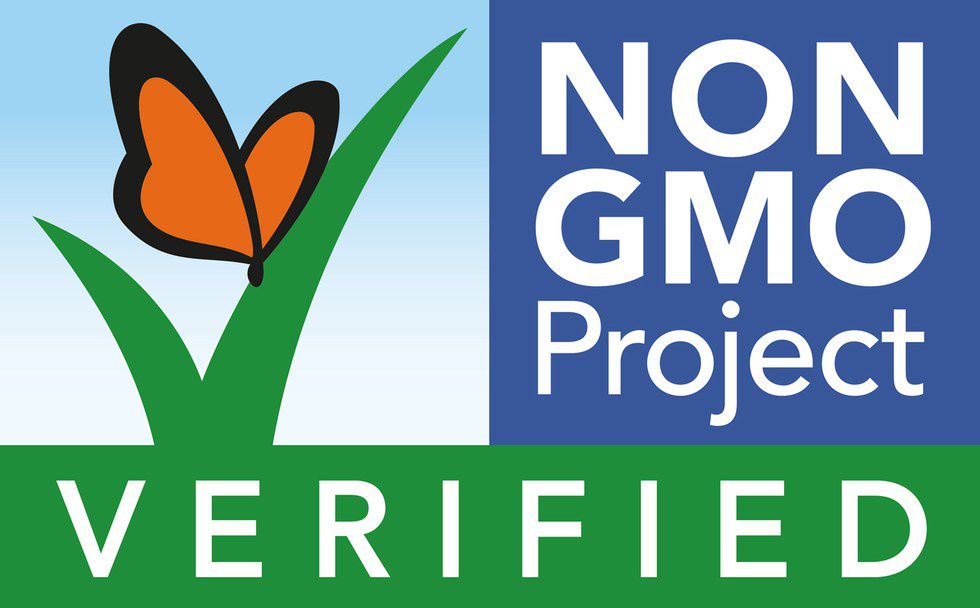The final week is here everyone! Hope you've enjoyed it, or at least learned something. If you missed part one and two, check them out here and here. This week we're finally going to discuss the recent GMO labeling bill, and then I'll give you some tips about how to avoid GMOs, just in case you've decided you want to do that.
The "DARK" Act
The "DARK" Act is a nickname for S. 764 (and other similar pieces of legislation) which was signed into law by President Obama on July 29, 2016. "DARK" is an acronym for "Deny Americans the Right to Know", which is exactly what these laws are trying to do. This particular piece of legislation was actually initiated to address the National Sea Grant college program, with which I am not familiar, but I'm pretty confident it has nothing to do with the labeling of genetically modified foods. An interesting thing about our legislative branch is that they are able to draft legislation for one thing, and then tack on a bunch of other unrelated things in the form of amendments. I'm not an expert in this area so I don't know exactly how it works, but I know it happens all the time.
What this law basically says, is that bio-engineered foods (GMOs) need to provide something on the label that would allow consumers to find out if the food was produced with GMOs, this can be in the form of text, QR code, symbol or, phone number.

This law also leaves much about the definition, and qualifications of GMOs up for interpretation by the Secretary of Agriculture. This means the Secretary will be able to make decisions about what percentage of a product has to be comprised of GMOs to even require labeling, and whether or not certain practices even "count" as genetic engineering.
Vermont's labeling law
The thing about this that's especially frustrating is that it's being touted as good news. Like, "Yay! GMO-labeling is finally here!" But the reality is that it's hardly here, and it's going to overturn better state-level labeling laws like the ones in Vermont (which just went into effect).
The passing of the GMO-labeling law in Vermont was the first of it's kind and gave the impression that country-wide labeling was on the horizon. As a result of its passing, major companies began committing to labeling their products because they weren't going to make special labels just for Vermont, so they started labeling them country-wide. This progress was not received kindly by the large agro-chemical, agricultural, and grocery manufacturing corporations (discussed last week) that for whatever reason would rather funnel millions of dollars into anti-labeling efforts than just put these little words on their products.

Give 'em what they want...
...but make it a pain in the ass. That's what S. 764 is - it's a labeling bill, that's far more complicated than it needs to be in order to suit the very wealthy corporations that want to keep us from knowing about what's in our food.
The law allows the manufacturer to choose how they label, from a whole variety of methods. This means that they could put a 1-800-number on the side of their package and the only way you would be able to find out if the product contains genetically modified ingredients is if you call and ask. It means that they could put a QR code on the side of their product, so you would have to download a QR-code app (assuming you have a smart phone of course) and scan the code which would then bring you to a website (assuming you have service in the store), and somewhere on that website you'd be able to determine wether or not it contained GMOs. These seem like totally reasonable means right?
Grocery shopping was just too easy the way it was. You were already sifting through all the unregulated, misleading health claims on the front of your products just to determine wether or not they're actually good-for-you. Now, you get to add to your shopping experience by calling phone numbers on the back of each product before you can decide if you want to purchase it. Oh, and don't worry I'm sure your 3yr old, that's riding along with you will have the patience for this too. What's that? You don't have the time for this? No way!
That's exactly what they were hoping for, they're calling it a labeling law while still keeping us in the dark. The majority of people are not going to go to these measures to find out about wether or not there are GMOs in their food, and another big portion of people may not even have a cell phone, or smart phone in order to get this information. It's ridiculous, and discriminatory.
The legislation itself even addresses these issues, stating that a study will be conducted to consider wether or not consumer-access to the disclosure via electronic means could be impacted by other circumstances, aka they're going to spend time and effort trying to determine wether or not electronic-disclosure is feasible...instead of just doing the obvious, easy, affordable thing which is to just write it on the label where all the other information about products is already found. One of the biggest arguments by the labeling-opponents has always been that it would be "too expensive" to label GMOs, but now it's not "too expensive" to develop websites, and manage phone lines to provide the information? It makes me dizzy.
This law will override Vermont's law and companies will no longer have to clearly label, they'll be able to choose from any of the methods set forth. The good news is Vermont will get to keep their clear labeling for at least two more years, while this new federal one is prepared for enactment (or hopefully gets overturned). There's also a pretty good chance that the positive consumer response, that the companies who chose to adopt labeling received, will result in them keeping their labels how they are.
The Center for Food Safety is actually building a lawsuit against this recent law, stating that it is unconstitutional on a number of grounds. If you'd like to get involved and help with that, click here.
Now for the tips & tricks:
I feel like these articles may have inspired some level of curiosity about GMO foods, wether or not you're eating them, and perhaps how you can avoid them. So, here are few steps that I take myself to try avoiding them:
1. Buy Organic: organic, by definition, doesn't contain genetically modified ingredients. Organic also means no synthetic fertilizers, herbicides, or pesticides. Oh, and it also means the food wasn't fertilized with sewage sludge (yeah, that's a real thing). If you can't afford to buy everything organic, or your store doesn't have a lot of organic options, check out the EWG's Dirty Dozen list to see which produce items are the most important ones to buy organic (they also have a Clean Fifteen list, of ones that are least risky to buy non-organic).
2. Look for the Non GMO Project seal: This is non-profit organization that has become the most trusted way to verify that something is non-GMO.
3. Avoid corn, soy, canola, cottonseed, and sugar ingredients that don't specifically say "non-gmo": These are the top genetically modified crops in our country, and by this I mean that literally 90% of corn grown in the U.S. is genetically modified. Read ingredient labels, these things are in virtually everything.
4. Avoid dairy that does not say "no rBGH": You may also want to just stick with organic dairy, "no rBGH" means they weren't supplemented with growth hormones, but it doesn't mean they weren't fed a diet of GMO corn, so organic is probably best.
5. Use EWG's Shopper's guide to avoiding genetically-engineered foods: The Environmental Working Group is the best, they have a guide for everything, here's this one.
Woohoo, we made it to the end! I really hope this series was enjoyable, or informative for you, both would be even better. Remember not to make yourself crazy, avoiding GMOs is diffiicult, they make up nearly 80% of the foods we eat in this country, and even if you aren't eating them the animals that provide your meat may have eaten them. So just do what you can, stay informed, and maybe even get involved. I'm a part of a lot of mailing lists (EWG, again) that give me the heads up on upcoming legislation votes, so that I can contact my state reps and tell them which way I'd like them to vote. They don't always listen, but I feel good about trying, so maybe you would too.
Thanks so much for reading, and let me know what you might like me to write about next!























